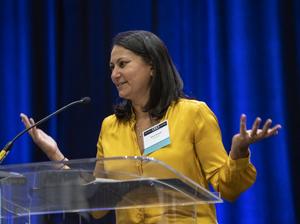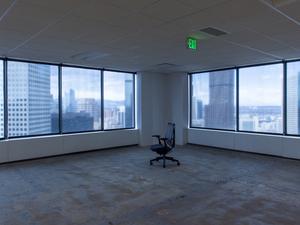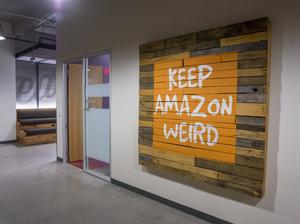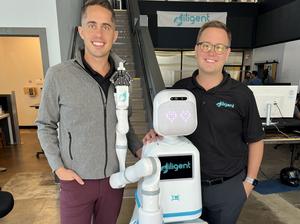If 2021 was the year of massive wins and frothy markets for startups, 2022 was the year of turbulence and rapid adjustments.
But through the uncertainty, many local entrepreneurs had one of their best years ever. And while venture capitalists may have been operating cautiously, many of them raised massive new funds that foreshadow a steady flow of investments for years to come.
In the Austin area, new unicorns emerged while others were forced to make difficult cuts. Meanwhile, dozens of early-stage startups, which have tended to be Austin’s bread and butter, found their way to fresh funding, product launches, key hires and major deals.
Now in their seventh year, the Austin Inno Fire Awards seek to highlight and honor the local startups, VC firms and supporting organizations that churned out major wins during 2022.
We’ll celebrate all 55 organizations on this year’s list at a fun awards ceremony at Capital Factory on Wednesday, Nov. 30, starting at 5 p.m. At the event, there will be plenty of networking and drinks. There will also be extra recognition when Austin Inno names the Blazer winner for each below category.
Grab a ticket here, and keep reading to learn more about this year’s Fire winners ...
Software
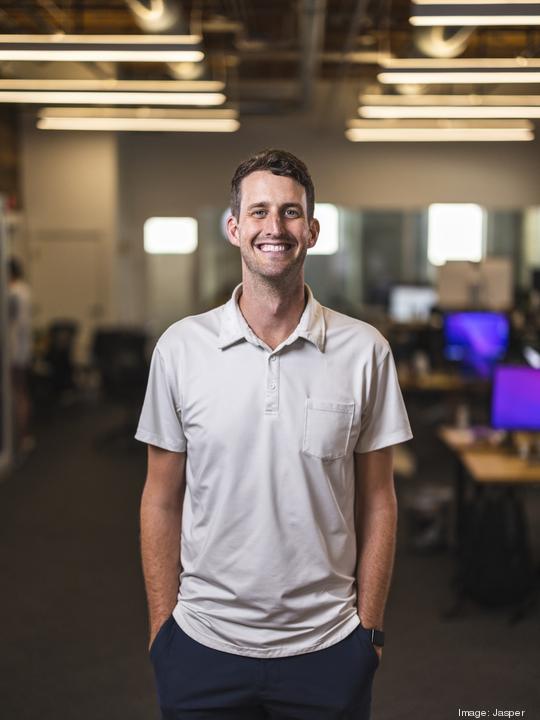
Jasper went from being a relatively unknown startup in Austin's tech scene to one of its darlings with the help of a massive $125 million series A investment this fall. That quickly catapulted the company into unicorn status at a time when the number of companies valued at $1 billion or more has been dwindling amid a rocky market. Jasper's generative content, powered by AI, is being used by thousands of marketing professionals who feed the AI basic information and then see human-like copy emerge on the other side. The startup, led by CEO Dave Rogenmoser, has a subscription-based model that has been developed with ad writing, blogs and other web content in mind. It's already been used for everything from birthday cards to a book created by an 8-year-old boy.

After moving from Houston to Austin in 2021, this e-commerce company has been riding a wave of online commerce innovation. Its downtown office makes it a fixture of the local startup ecosystem. The startup kicked off the year with a $240 million equity and debt funding round in February. Then, in March, it said it had acquired DataFeedWatch, a European-based company that provides data-feed management services. Terms of the deal were not disclosed. The company was started in late 2020 by CEO Omair Tariq and Jim Jacobsen, but it has already been prolific on the M&A front. It completed its ninth and 10th acquisitions in January, buying SellerActive and FB Flurry.
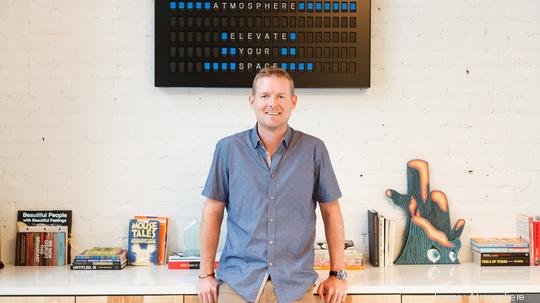
Austin has long known the powerhouse content machine that the Chive built. This new iteration, Atmosphere, is building on that viral content and spinning off innovative ideas at a rapid pace. It started 2022 with a $100 million round, that included $80 million in equity funding led by Connecticut-based Sageview Capital, along with Chicago's Valor Equity Partners and Austin-based S3 Ventures. It also secured $20 million in debt funding from Bridge Bank. Its valuation remains guarded, "but what I can say is we're knocking on the door of unicorn status," Resig said at the time. Earlier this year, the Austin Business Journal named it the top company in its Fast 50 Awards.
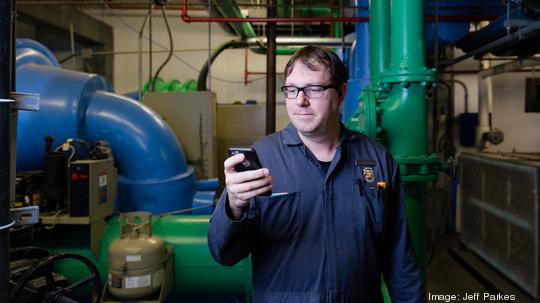
If Elon Musk's acquisition of Twitter wasn't enough to show you the value of connectivity, then take a look at Zello. It's an Austin company that has become a cornerstone of emergency communications during major world events, from hurricanes here in the states to battles abroad. This year, it took on VC funding for the first time with a $20 million round. "As is often the case, it's a go-to app in times of crisis," CEO Bill Moore said earlier this year. "That communication is pretty valuable to the population."
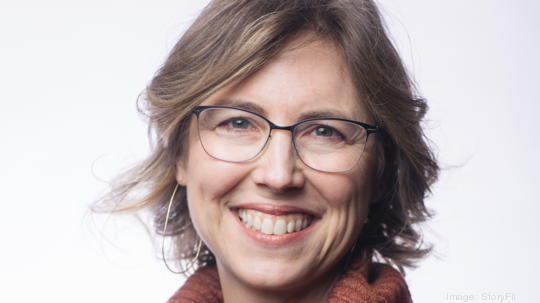
Storyfit fits at the intersection of Austin's creative and tech communities. Its natural language processing platform helps creators get insights they couldn't otherwise find to guide production. This fall, the startup, led by CEO Monica Landers, raised a $5.5 million in series A funding round. The startup also added Andy Terrel, a former chief data scientist at Real Estate Exchange Inc. and adviser to several startups, as chief technology officer.
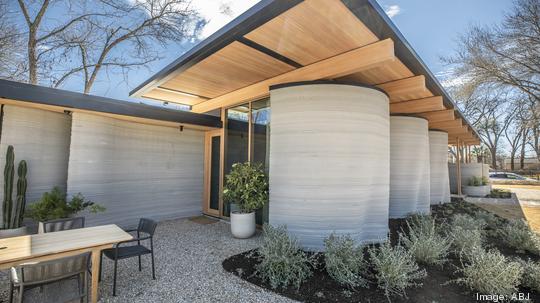
When Time magazine named Icon's fabulous east Austin prototype home one of its top inventions of 2022, it was basically the cherry on top of a big year. The company had started the year with a $185 million round of funding. Then, it debuted its higher-end build in East Austin at SXSW in March. And just as people saw it among Time's top inventions this fall, the company revealed one of its first big commercial applications, announcing its role in a 100-home community in Georgetown.

Spruce has been cleaning up throughout 2022. The startup, which sells housekeeping, chore, pet care and laundry services to apartment communities, brought on Steven Pho, a former executive at Austin-based Favor, as its new CEO in July. At the same time, it snagged a $26 million series B. It also added David Sweet, who had been with Austin-based Eterneva, as VP of marketing and growth. And it expanded into the Twin Cities market, as well as Jacksonville, Fla.
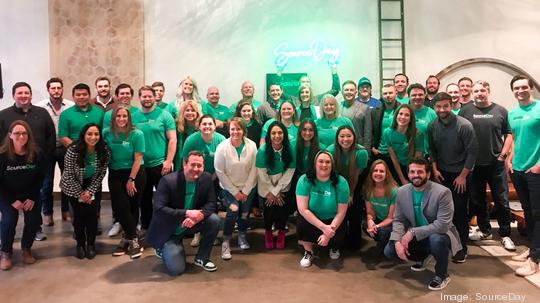
While VCs were eyeing many investment opportunities with more skepticism in 2022, supply chain startups enjoyed some time in the spotlight as companies around the globe continued to face new challenges in getting the materials and products they need on time. SourceDay was among the logistics companies to secure fresh funding — a $31.5 million series C that boosted its total backing since launching in 2015 to about $58 million. The startup, founded by CEO Tom Kieley and COO Clint McRee, also brought on former LevaData CPO Adeel Najmi as its chief product officer.
For most of us, an amusement park batting cage is enough of a challenge. But for those who need access to game speed pitches from crafty pitchers, Austin's Win Reality has developed a VR training platform. It's not a game, but rather a tech-enabled coaching and practice product that has impressed college and pro baseball and softball players. In June this year, the startup raised $45 million in new growth equity investment. The local startup's programs run on the Meta Quest headset and helps players learn how to hit from a large library of pitchers, and its users range from up and comers to Major League Baseball stars.
For some, a hotel is a place to shower and sleep. For others, it's all about the experience. And hospitality businesses need compelling brand activations to draw guests in. That's where Way comes in. Founded in 2020, it has developed a brand activation platform that's already being used by big name hotel groups, including Austin's beloved Bunkhouse Group. In November, the startup announced it had raised a $20 million series A funding round at a $100 million valuation, a massive leap for such a young company. The startup is led by CEO Michael Stocker, who previously founded OnlySky Inc., which helps ski resorts run ski schools, in Denver.
CPG

BeatBox Beverages has been on our radar for years since it landed an investment on "Shark Tank" and then appeared on "Beyond the Tank." They've grown mightily since. Over the summer, the startup said its wine-based "party punch" had reached more than 34,000 stores, up from 19,000 last year. And it expected revenue to reach $36 million to $37 million this year, up from $7 million in 2020. Aimy Steadman, Brad Schultz and Justin Fenchel founded Austin-based BeatBox, which is part of Future Proof Brands LLC, in 2012. It has used two crowdfunding rounds, one at the end of 2020 and another in the beginning of this year, to raise $2.2 million from more than 2,500 people.
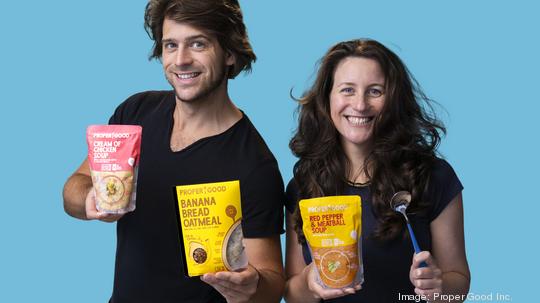
Eating well quickly is tricky. Proper Good has built a business around making it easier with ready to heat soups and oatmeals with clean ingredients. The two-year-old startup landed an appearance on "Shark Tank" in 2021. Then, in 2022, it scooped up $3.5M in seed funding and announced it is launching its shelf-stable prepared meals at 2,000 Walmart locations. Brother and sister co-founders Jennifer and Christopher Jane say the business has grown 400% year over year. They expect revenue in the eight figures next year and suggested the company will become profitable by the first quarter.
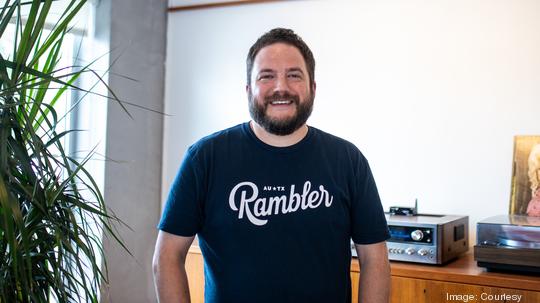
Rambler Sparkling Water seemed to enter the market at the right time when it started selling its canned drinks in 2018. It's been racking up milestones ever since, and this fall it reported raising just under $11.6 million in fresh funding under the legal name Riptide Waters LLC. CEO James Moody said the cash infusion will be used to add jobs and invest in growth. While it has a clear Austin and Texas vibe, the company's sparkling water has been sold in every U.S. state. This fall, it launched its Rambler Yaupon Energy, an all-natural energy drink available in pomegranate, peach, blackberry mint and lime coconut.
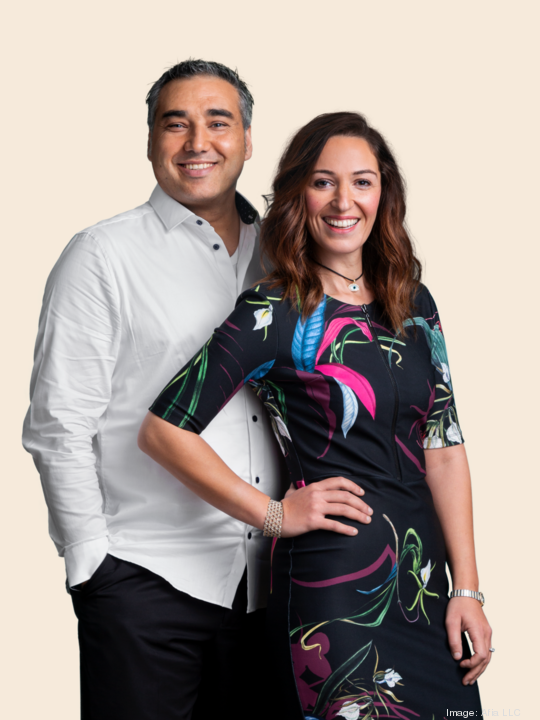
After relaunching with new packaging in 2021, Afia in 2022 went on to begin work on a new, larger facility to boost production to 500,000 of its frozen falafels a day. Its married co-founders, President Farrah Moussallati Sibai and CEO Yassin Sibai, also reported this year that its products debuted in about 400 Whole Foods stores nationwide. It has aims to have its products in 3,000 stores by the end of the year.
Prebiotic soda startup Poppi was one of Austin Inno's Startups to Watch earlier this year, and it has lived up to the billing. After moving last year to Austin from Dallas, it reported this fall it had raised $13.6 million in equity funding. The company, legally known as VNGR Beverage LLC, is led by husband-and-wife co-founders Stephen and Allison Ellsworth. The startup, previously known as Mother Beverage, also landed a $400,000 deal on "Shark Tank" in 2018. Its investors have included CAVU Venture Partners, Chainsmokers, Russell Westbrook, Ellie Goulding and Nicole Scherzinger, and influencers like Chantel Jefferies, Bryce Hall and Noah Beck.
Social Impact and Edtech
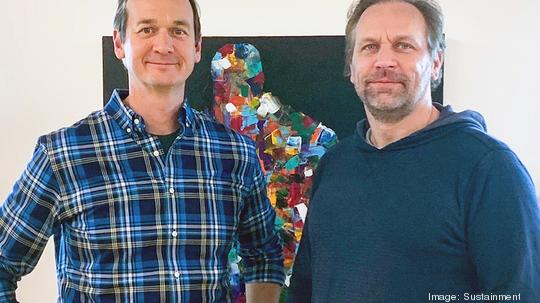
A still relatively rare example of a local company organized as a public benefit corporation, Sustainment’s mission is to encourage domestic manufacturing. The software business has developed a platform that analyzes customers’ supply chains and tells them where they can find new partners. It converted to a public benefit company — a designation that means it balances profits with wider goals — earlier this year, around the same time it raised $12 million in series A funding. “We view manufacturing as an essential part of the American identity, and we are convinced that enabling domestic supply chains benefits our country,” Sustainment co-founder and CEO Bret Boyd said.
Austin Community Foundation’s The Black Fund
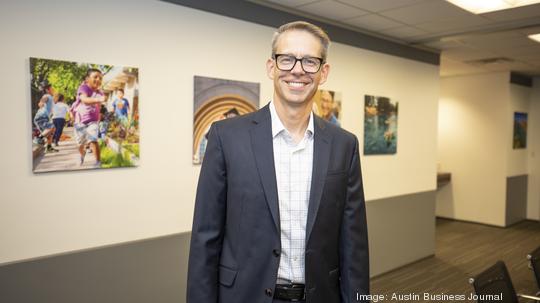
ACF is a longtime funder of worthy causes in Central Texas. But The Black Fund, launched this year, recognizes the different kind of work needed to close the racial wealth gap. The giving network will channel money from donors to Black-led organizations, with the goal of investing more than $1 million in three years. ACF put $200K of its own money in the fund, plus donations from Google, Indeed, Notley and MFI Foundation. The effort was co-founded by Colette Pierce Burnette, former president and CEO of Austin’s Huston-Tillotson University, who called The Black Fund “an opportunity for Austin to intentionally invest in equity, embrace the unique assets of the Black community, and support longstanding impactful initiatives of Black-led and Black serving organizations.”
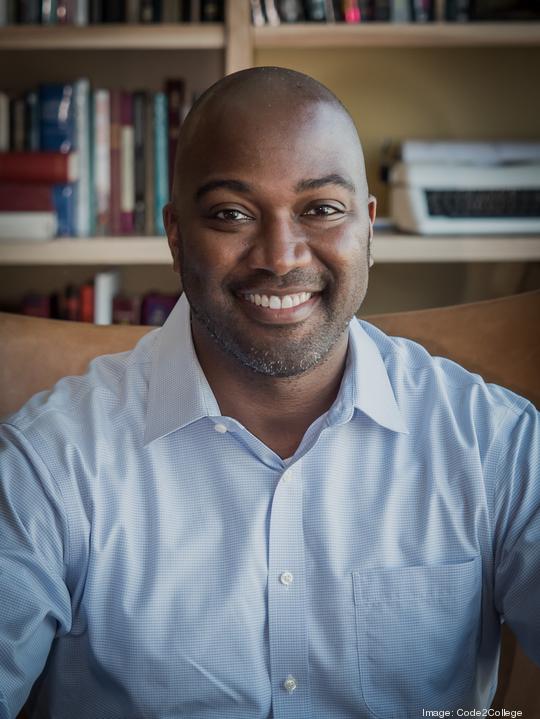
Founder Matt Stephenson knows a great way to increase the ratio of racial minorities and other underrepresented groups in computer science is to get the talented professionals inside big tech companies directly involved — to harness their passions and experiences. He’s been able to corral support from the likes of Atlassian, Indeed and Google for his nonprofit that turns tech workers into after-school volunteers for high school students. By late 2022, six years after its foundng, Code2College had worked with more than 2,500 students in 20 cities and gotten more than 250 high schoolers into paid tech internships. Earlier in the year, it launched what it calls The Austin 400 — a goal to raise $2 million and place 400 young people in software internships in 2022 and 2023. All of that fits into Stephenson’s goal to change how tech leaders think about recruitment and workforce diversity.

Student loan debt remains at the forefront of the national discourse, so it makes sense attention is being paid to businesses that try to tackle the issue. They include Chipper, which has built an app that helps people with student loans better manage payments, identify payment options and qualify for forgiveness programs. Founded in 2017 by Tony Aguilar, a first-generation college graduate himself who took out loans to complete school, the startup in early 2022 raised $5.6 million in seed funding — a round led by Freestyle Capital, Slauson & Co. and Propel Venture. At the time, it had 80,000 users. By November, that had jumped to 130,000 users. Additionally, Chipper is part of the The Cap Table Coalition and pledged for 25% of the seed round to come from the coalition's Black, Latinx and diverse investors.
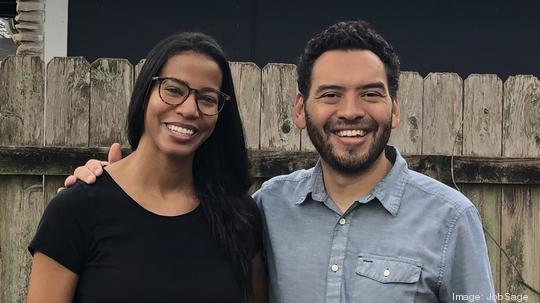
Searching for a job is already tough. For minority candidates, navigating the systemic racism and sexism often encountered in the process makes can be truly demoralizing. Thats where JobSage, founded by Jacob Rios and Kelli Mason, comes in. It has built a workplace review platform where people can share honest opinions about important topics that often get neglected during the job hunt, including fair pay, flexibility and company culture. The startup also helps companies with a leg up during the often difficult recruiting process. Recently, JobSage completed its $1 million-plus seed funding round with money from ATX Venture Partners, Notley Ventures, Singularity Ventures and angel investors. Its website was getting 45,000 visitors per month in the fall, up from about 4,000 at the start of the year. And it recently launched a paid product offering, which will be a primary focus point in 2023.
Fintech & cybersecurity
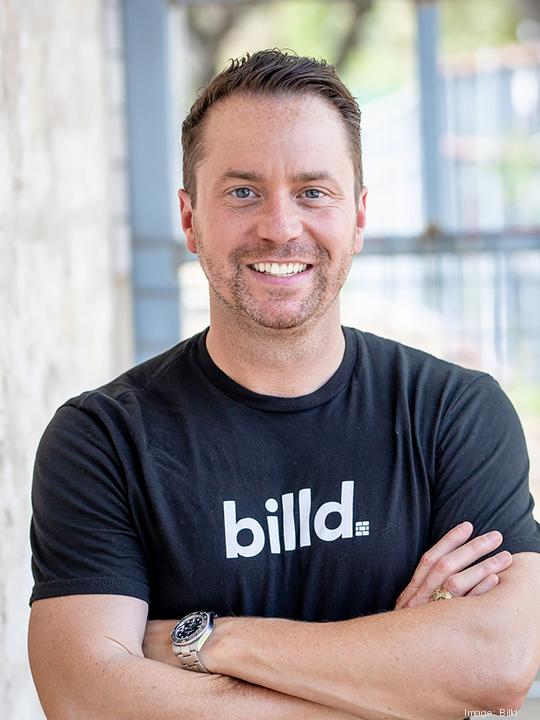
Founded in 2018 to help contractors finance the purchase of construction materials, Billd quickly found itself on our radar due to rapid growth. The startup raised a $60 million series A round in 2019, followed by a $30 million series B round in July 2021. At that point, the company, led by President and CEO Christopher Doyle, had already surpassed $100 million in revenue. Later that year, Billd ranked No. 1 in Austin Business Journal's awards for fast-growing large companies, with revenue up 1,933% in three years. More recently, the startup announced Nov. 1 that it had closed on a $100 million debt facility, led by LL Funds, "to support increased demand from both new and existing customers."
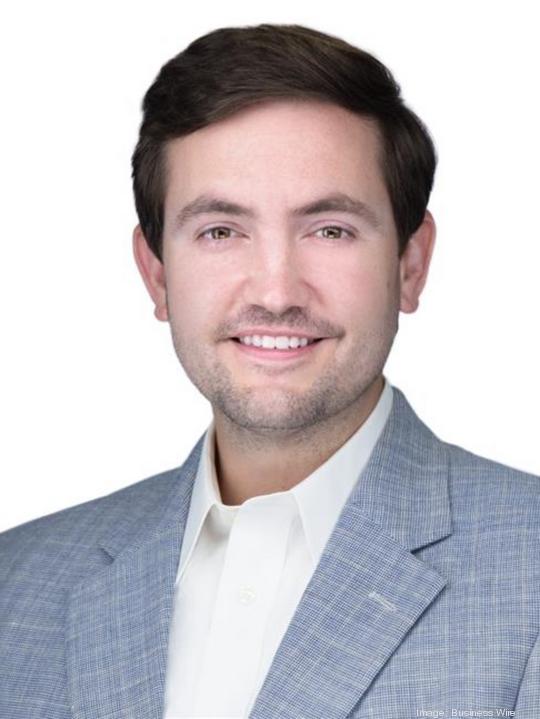
The idea behind Closinglock began in 2017 when co-founders Andy White and Abigail White learned of a wire fraud scheme that used email. The husband and wife developed a platform to securely share wire information that has now been used across 42 countries and protected more than $100 billion. The startup in August raised $4 million in seed funding led by Austin-based LiveOak Venture Partners. Closinglock said at the time that it had 13 employees and was looking to roughly double its headcount. The company also assists customers with document sharing, e-signatures and loan payoff verifications.
This company came charging out of stealth mode in August with $15 million and a mission to protect the huge amounts of data now contained in apps and other cloud-based web services. At the time, it already had a $50 million valuation, TechCrunch reported. Backed by 468 Capital, DNX Ventures and Munich Re Ventures, Ghost Security wants to protect the application programming interfaces that allow apps and devices to talk with each other. The startup was founded by three experienced cybersecurity entrepreneurs: CEO Greg Martin, Chief Product Officer Eric Cornelius and Chief Technology Officer Josh Larsen. Martin previously founded Austin-based security company Jask, which was acquired by Sumo Logic.
SaaS sprawl is real — and if you don't know what it is, you're probably part of the problem. The proliferation of cloud-based software for nearly every conceivable task means many businesses have no idea just how many applications they actually use. Instead of fighting with employees over what they can download, Nudge Security's software tracks the SaaS assets they create and "nudges" them toward more secure choices, like enabling two-factor authentication. The business co-founded by CEO Russell Spitler and Chief Technology Officer Jaime Blasco announced a $7 million seed round in April and rolled out its first product in October.
Spyderbat is returning to this list after racking up more funding and product innovations. The company that makes software for protecting companies in the cloud raised a $10 million series A round in October led by Menlo Park-based NTTVC, with Austin-based LiveOak Venture Partners also chipping in. Founded in 2019 by CEO Marc Willebeek-LeMair and Chief Technology Officer Brian Smith, Spyderbat has built a platform for observing activity in the cloud and preventing intrusions, and it also contributes to open source initiatives to more widely share cybersecurity tools. It last appeared in the Fire Awards in 2020, after it launched out of stealth with $4.2 million in initial funding.
Hardware
This company is making waves with a robotic forklift that can load and unload 18-wheelers — moving about 25 pallets per hour, so that multiple machines together can handle tens of thousands of pounds of cargo with one operator. But that’s just the start. The business led by co-founder and CEO Peter Anderson-Sprecher wants to apply automation to many more warehouse and logistics tasks, up to long-distance hauling. Fox Robotics has the backing of automotive giant BMW — the startup in October announced a $20 million funding round led by BMW i Ventures. New investors Zebra Technologies, Japan Airlines & Translink Innovation Fund and Foothill Ventures also chipped in, along with existing investors Menlo Ventures, ENIAC Ventures and SignalFire. At the time of the round, Fox added Till Reuter, former CEO of publicly traded German robotics company KUKA, and David Fuller, CEO of Artificial and former CTO of KUKA, as board members. It already has a massive testing ground in customer DHL.
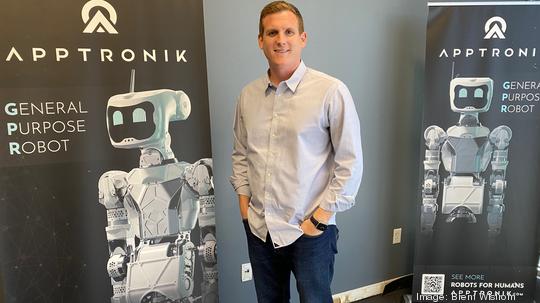
Another robotics company, Apptronik is building humanoid robots to take care of tasks that co-founder and CEO Jeff Cardenas has said fall under the “three Ds”: dull, dirty and dangerous. That obviously has applications in sectors like energy and logistics. But the company has also attracted the attention of the military and government agencies. Apptronik announced in September it would work with NASA to commercialize a “general purpose robot” called Apollo. GPRs representa a holy grail in the robotics world, because they are machines that can handle a wide variety of tasks in different environments (such as space), unlike more ubiquitous but highly specialized robots. In June, Apptronik raised nearly $15 million in seed funding from Capital Factory, Grit Ventures and Perot Jain. “These robots will first become tools for us here on Earth, and will ultimately help us move beyond and explore the stars,” Cardenas stated in September.
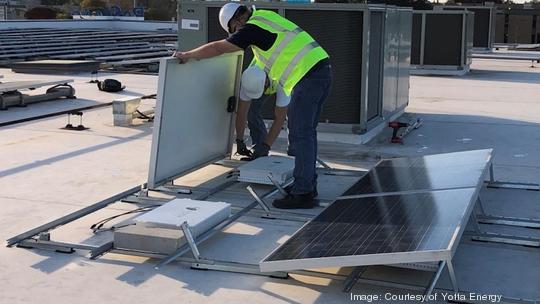
This company is really getting its product out there — this year, it secured multiple seven-figure contracts to install solar energy storage systems in locations as varied as military bases and low-income housing communities. That included nearly $2 million to install a solar power and storage microgrid project at Nellis Air Force Base in Las Vegas. In September, it announced new products such as electric vehicle charging stations. Yotta Energy also added $3.5 million to its series A funding round in 2022, boosting it to $16.5 million in size, as it pursues a mission to make renewable energy more reliable and approachable, thus reducing emissions and fighting climate change. The company, led by co-founder and CEO Omeed Badkoobeh, is a graduate of Jon Brumley Texas Venture Labs at UT and was a 2021 Inno Startup to Watch.
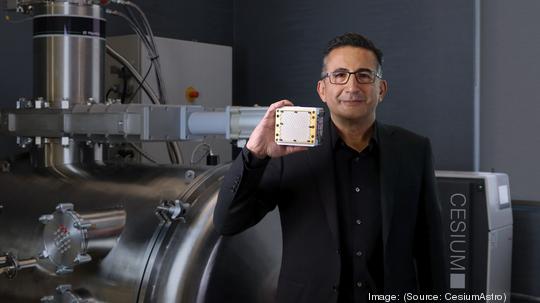
We’re all eagerly awaiting air taxis and widespread drone delivery. Companies like CesiumAstro will provide the infrastructure backbone for such technology — it offers satellite-based communications devices for use by government agencies and companies. CesiumAstro already has multiple satellites in oribt and in March announced a $60 million funding round led by Airbus Ventures and Forever Ventures. The company, founded by Shey Sabripour in 2017, has raised a total of nearly $90 million. It is dedicated to the commercilization of space — over the summer, CesiumAstro joined the Digital Intermediate Frequency Interoperability Consortium, which is dedicated to advancing interoperability in satellite and ground-system networks. Basically, it shows the company is committed to developing tech that is compatible with the other stuff going into space, a key concern as more of our economy moves outside the gravity well.
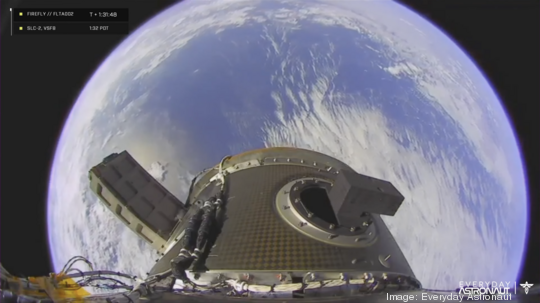
Firefly joined an exclusive club in October, when it launched a rocket into orbit from Vandenberg Space Force Base in Southern California, to estatic cheers in its mission control room. The company said at the time it was the first company to reach orbit from U.S. soil on only its second launch attempt. Its Alpha rocket, which can carry payloads of up to 1,300 kilograms, could become a workhorse of “medium-lift” flights just as the commercialization of space really heats up. Firefly is scheduled for six launches to deliver customer payloads to space in 2023, followed by 12 in 2024. It’s a remarkable trajectory for a company that was bought of of bankruptcy about six years ago. Now led by CEO Bill Weber, Firefly in August announced it would supply its Miranda engines to be used in Northrop Grumman’s Antares rocket.
M&A
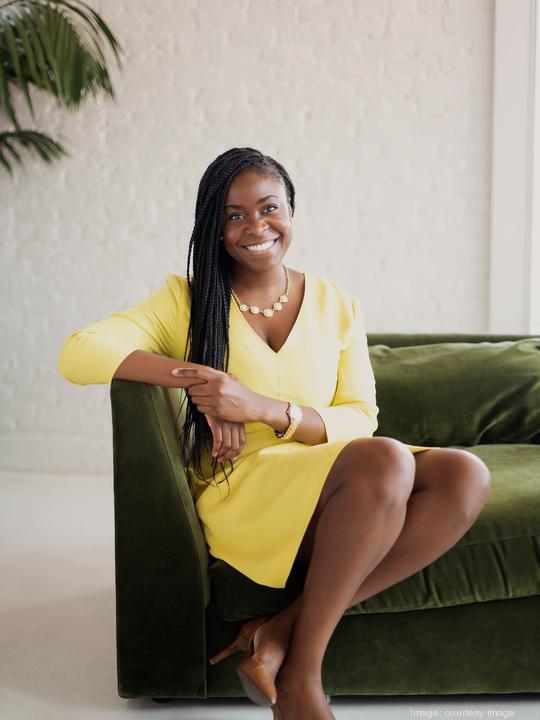
This company’s fall 2022 deal was a reminder of how far the startup scene has come in terms of diversity in equity, and of how far it still has to go, even in a progressive city like Austin. When Janice Omadeke’s The Mentor Method was bought by The Cru in September, it was heralded as a successful exit for a company dedicated to creating strong workplace relationships and helping companies recruit and retain talented and diverse workers. But it was also the first ever acquisition in Austin by a venture-backed company founded by a Black woman.
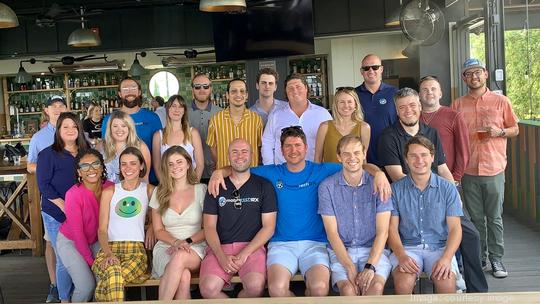
What started in 2015 as software to help car repair businesses estimate damages is now part of something much bigger. Mobile Tech RX has continued to evolve since the company was acquired in 2021 by Repairify. It is part of the Repair OnDemand platform launched in November by Repairify — a nationwide network connecting auto dealerships, rental car companies and others with repair businesses, kind of like an Uber for vehicle reconditioning. Mobile Tech RX was founded in 2014 by Daimen Simmons and Eric Garves and was bootstrapped until 2019, when it landed a $4.2 million investment from Silverton Partners. It purchased Austin-based ClaimBot in November 2020 for an undisclosed price.
A year after being bought by Pluralsight, A Cloud Guru is being integrated more closely into the the Utah-based workforce development company. It represents a rollup orchestrated by Vista Equity Partners, which purchased Pluralsight in April 2021. As more companies shift to cloud-based software and systems, the A Cloud Guru — which offers online courses to train people in popular computing platforms such as Amazon Web Services and Microsoft Azure — and Pluralsight say their combination can help solve the growing "cloud skills gap." Prior to being acquired, A Cloud Guru had raised more than $42 million.
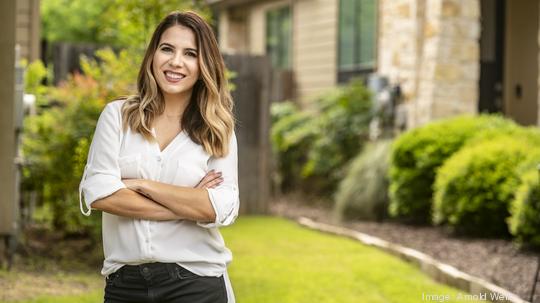
The first acquisition by this digital health company was a big one — it said in mid-November it would buy technology from GoodRx, incorporating backend software for electronic medical records and patient experience into its existing platform for virtual doctor's visits. Financial terms were not disclosed by the company although Wheel reportedly paid nearly $20 million in cash. Founded in 2018 and led by CEO Michelle Davey, Wheel has raised about $215 million, according to Crunchbase.
Passage's goal to eliminate passwords would bring relief for all of us who constantly forget, and have to reset, login info for countless web services, in parts of our life from shopping to traveling to banking. It's also a highly valuable proposition for businesses, which lose orders and time because of struggles with password retention. The company has more resources to accomplish its mission after being acquired in November by 1Password. Passage says its biometric authentication process is both more convenient and more secure than traditional authentication methods. Passage had raised $4 million in seed funding earlier in the year, a round led by Austin's LiveOak Venture Partners. The startup, founded by Anna Pobletts and CEO Cole Hecht, launched its public beta in February.
Investors

Crypto investment firm Multicoin Capital made Inno’s Fire Awards list last year, and it’s back in 2022 after raising a new, $430 million fund to back Web3 startups. Multicoin was founded in 2017 by managing partners Kyle Samani and Tushar Jain, and it has personnel in Austin and New York. The firm's first fund launched in 2019 with $75 million, which it followed up in 2021 with a $100 million fund, according to Crunchbase. It has made 106 investments in total, including being lead investor in 22 deals so far in 2022.
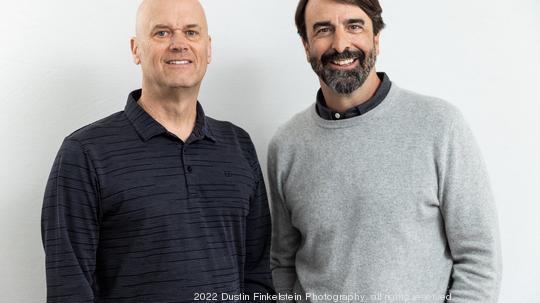
Venture is a long-term game. So big wins are typically months or years in the making. Next Coast this year capitalized on its growing momentum to raising $310 million across three new investment funds. It came a bit more than two years after Next Coast raised a $130 million second fund. The firm, which has backed Austin unicorns such as Everly Health and Icon, also set up a new program called Next Coast ETA, which gives founders capital to acquire a small- to mid-sized business, or what some call a mini-special purpose acquisition company.
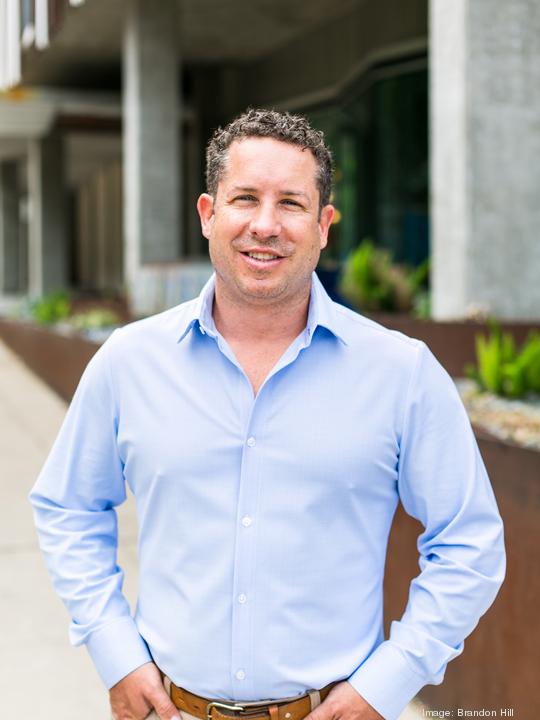
As one of the firms that helped re-establish Austin as a significant hub for VC funding, Silverton Partners has played a pivotal role in the local startup scene. And it keeps pumping it up more. This year, Silverton announced it had secured $248 million across two funds to continue fueling startups in Austin and beyond. Managing Partner Morgan Flager said the firm will likely make 20 to 23 investments in early-stage startups, with about two-thirds of the money going to Texas-based companies. Among the many companies it has backed are two that are also winners in this year’s Fire Awards – SourceDay and Wheel.
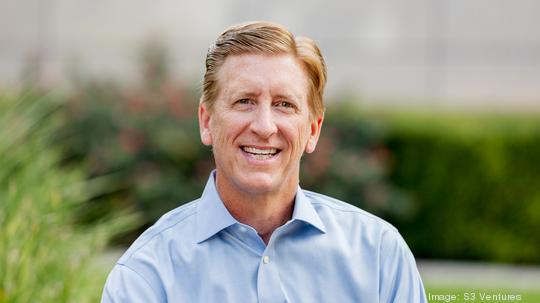
As one of Texas’ most active venture firms, S3 Ventures this year said it raised a new $250 million fund to back startups in Austin, Dallas, Houston and San Antonio. It is the firm's seventh fund, and it follows one announced in 2016 that grew to about $200 million. The firm now has more than $900 million in assets under management across 50-plus deals. It has also logged 20 exits, which typically bring strong returns back to firms.
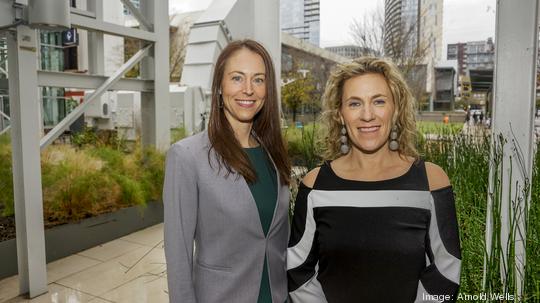
True Wealth Ventures launched in Austin with a mission to invest in promising women-led startups. And it’s an important and consistently overlooked opportunity. Only 2.3% of all the VC dollars flowing to startups in 2021 were to companies founded solely by women. And data released by PitchBook this spring showed less than 15% went to companies with at least one woman co-founder. Meanwhile, on the venture side, woman continue to be underrepresented. True Wealth is a prime example of how to change that. This year, it raised a new $35 million fund, which follows up on the $19 million it raised for its first fund that closed in 2018. The firm’s funds also have been fueled by mostly women limited partners. The firm has 80% women LPs across its funds and the actual dollars that come from women were about 75%. The firm, led by Sara Brand and Kerry Rupp, has said that a majority of the women LPs investing in its first fund had previously never been invited to invest in a venture fund.
Healthtech
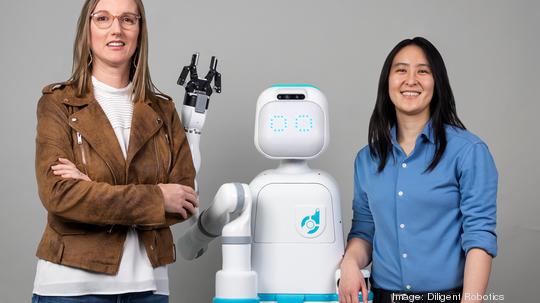
If you’ve spent a day or two in a hospital, you know how many micro-chores there are as care teams manage their patients. Having an intelligent robot to assist can save valuable time, and Austin’s Diligent Robotics has developed just that – a bot called Moxi that has been deployed in several hospitals to help with basic tasks such as getting supplies and making deliveries to labs and patient rooms. Back in April, the company raised a $30 million series B round, bringing its total funding to about $45.9 million. The startup, founded in 2017 and led by CEO Andrea Thomaz, also added two new key players to its team in hiring Gregg Springan as head of clinical informatics and Nicholas Bloom as head of client success.
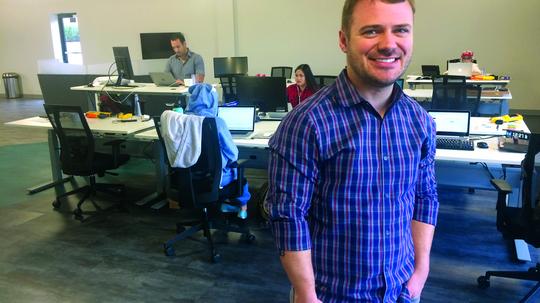
This digital learning platform for medical students, raised $25 million in funding in 2021 and followed that up with a $5 million round in November. Austin-based OnlineMedEd Inc., founded in 2014 by CEO Jamie Fitch and Dustyn Williams, also supports a specialized news site called The Rotation that covers medical education trends, racial injustice in the health care system and more.
Paradromics Inc., a local medical-technology startup developing brain-computer interfaces, this fall added $8.8 million in new equity and debt funding to further its mission. That came atop a $3.2 million research award from the National Institute of Mental Health in 2021. The startup, led by CEO Matt Angle, is ultimately focused on helping paralyzed patients who can no longer speak. And the data and learning from those trials could help inform a new kind of medicine in years to come.
What might have seemed impossible a few years ago is now in the domain of Phantom Neuro. The neurotech startup uses a low power system for human-like control of orthopedic devices. Earlier this year, the company raised $6 million in fresh funding and made a couple key hires. While the startup only launched less than a year ago, it has already raised $9.5M and is providing promising developments to people who have amputations or other functional issues.
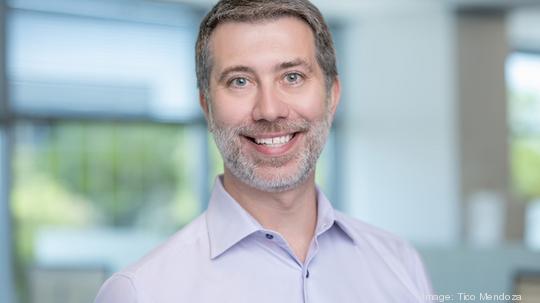
Earlier in the year, Austin startup SubjectWell opened up its platform, which connects patients with clinical trials, to people diagnosed with lung cancer. Then it expanded to breast cancer patients.
Meanwhile, its surveys of at-risk patients are finding a lot of demand from people with liver disease and other ailments who would like to try emerging treatments. The startup said its revenue had climbed about 800% in the past two years, with expectations to double that in the next 12 months. The startup, founded in 2012 by Ivor Clarke, Rick Westervelt, Kip McKenzie and Joel Lucas, this fall said it raised a $35 million in series B funding.
Community/support
Earlier this year consulting firm Blue Sky Partners helped launch a new project to document how nonprofits support the unhoused community in Austin. That work continues through the end of the year, and it adds to its track record of community support. It’s also partnered with City Hall and nonprofits on sustainability initiatives and teamed up with Impact Hub, TarmacTX and others on accelerator programs that help startups across the metro and beyond.
Capital Factory Center for Autonomous Robotics (CAR)
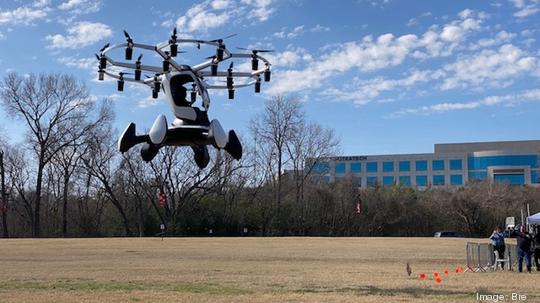
Drones and robotics have been all the buzz in Ausitn in recent years, and Capital Factory this spring launched the Center for Autonomous Robotics to help likeminded startups collaborate, as well as provide a nice space along Lake Austin to test drones and other bots. Aside from the open space to test vehicles, Capital Factory also expects it to be a powerful networking space with corporate, military and venture capital leaders visiting regularly, and startups sharing insights and connections to potential customers.
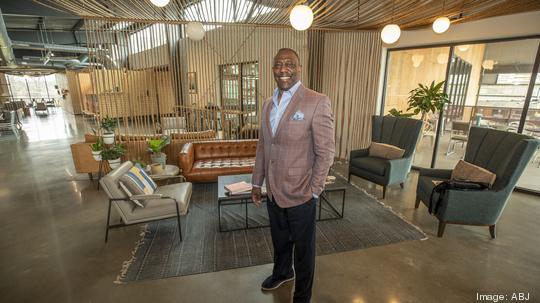
It’s been a busy year for DivInc, an accelerator designed to help diverse founders. Its Champions of Change Awards shined a spotlight on some of the city’s top changemakers. It worked with Q2 and Austin FC on the second annual Dream Starter Competition. It expanded its women in tech program in Houston, as well as launched a sports tech accelerator. Then, this fall, it worked with Blavity.org Foundation and launched a series of events at AfroTech 2022 in Austin.
Backing bootstrapped SaaS is what Founderpath was built for. It helps founders find funding with more agreeable and startup friendly terms. It used its own debt and equity financing to fund itself with $145 million. Led by founder Nathan Latka, Founderpath has provided more than $60 million to more than 100 founders, including $50 million in the 2021-2022 timeframe. Its providing nondilutive funding at a time where capital is harder to come by than anytime in the past few years.
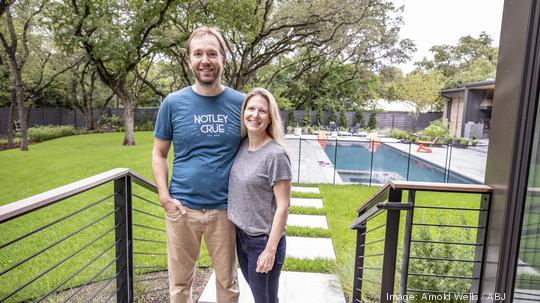
Building on several years of growth, both in investing and donating, Notley this year launched a new program called Rising Tide in partnership with Broadway Bank and Texas Partners Bank, that helps nonprofits get a better return by investing some of their holdings. The program is already being used by several organizations, including Livestrong Foundation, Urban Roots and Child Poverty Action Lab.
Inno Picks
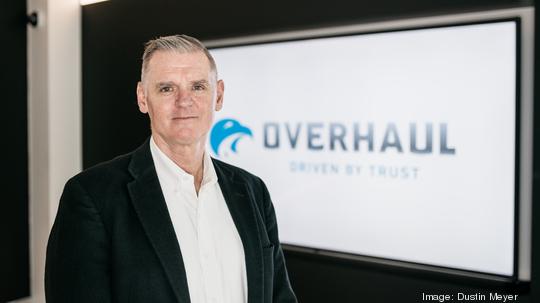
Supply chain software has been hot ever since the impacts of the pandemic began to set in. Austin-based Overhaul, which provides supply chain visibility and risk compliance, has been amount the startups riding that wave of interest. The company, founded in 2016 and led by founder and CEO Barry Conlon, raised a $35 million round in 2021, which followed a $17.5 million round in 2020. This year, the company was named as one of the launch partners on Microsoft’s new Supply Chain Center. And it also made the 2022 Deloitte Fast 500, showing a revenue growth rate of 646% between 2018 and 2021.
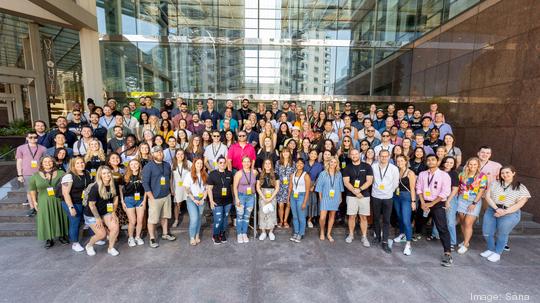
Employee benefits startup Sana Benefits raised a $60 million funding round from Austin’s Trust Ventures and Gigafund in June. It went on to become one of Austin Business Journal’s Best Places to Work winners, in part because of its remote work perk of a $300 allowance for coworking space, coffeeshops and the like. Those big moves made Sana one of the few companies to be named an Inno Fire Awards winner two years in a row.
Wursta may have had its start in IT consulting back when founder Matt Wursta was working out of a basement in Pennsylvania. But, two years after making Austin its homebase, the firm has evolved and watched its revenues climb. This year, the company was No. 601 on the Inc. 5000 list with three-year revenue growth of 435% and was a finalist in the Austin Chamber of Commerce 2022 Greater Austin Business Awards. The Google tech specialist, with new Web3 offerings, also doubled headcount this year.
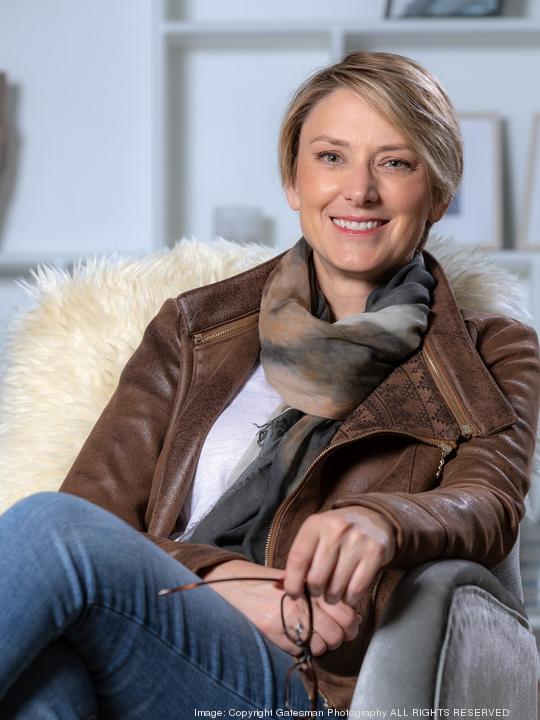
Spacetech has been growing in Austin for several years, and Slingshot Aerospace is among the city’s most exciting companies. The startup, which was co-founded by CEO Melanie Stricklan in 2017, this year raised a $25 million series A-1 funding round co-led by Draper Associates and ATX Venture Partners. And it put the money to use quickly, with new hires and the acquisition of the space domain awareness division of Numerica as well as U.K.-based Seradata for an undisclosed amount. The moves are designed to accelerate Slingshot's overall space situational awareness and space traffic coordination efforts. The deals will also enhance Slingshot's digital twin, which is a virtualization platform that draws on real-time space data.
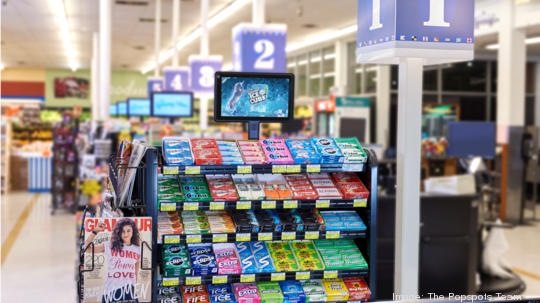
Clerk, formerly known as Popspots, raised a $30 million series B funding round earlier this year. As 2022 wound down, the company said it had also boosted headcount by about 90% this year and expanded its Grocery TV reach to all 50 states. The startup was co-founded in 2016 by Marlow Nickell, Don Oelke and Edward Cates. It raised a $5 million series A round a little more than two years ago, led by Silverton Partners, which fueled the company’s growth to a 350% increase in network size.
